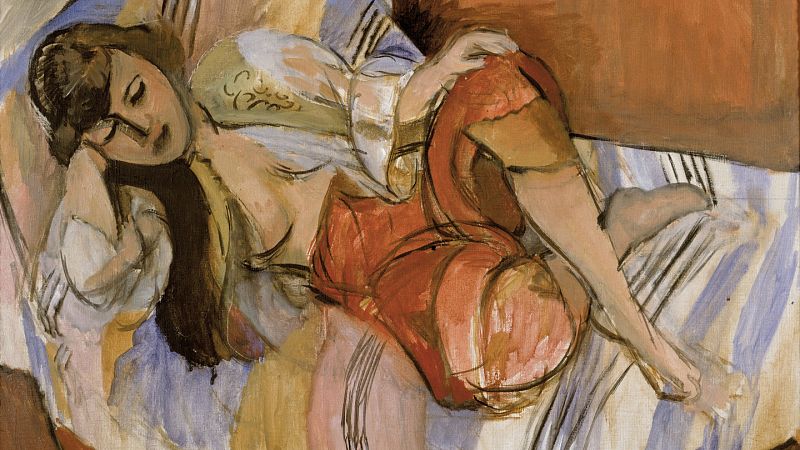Matisse masterpiece to be returned to heirs of Jewish family who fled Nazi Germany

A painting by French artist Henri Matisse is to be reunited to the heirs of the German-Jewish family who were forced to sell it after escaping Nazi Germany.
The Commission for Looted Art in Europe found that Matisse’s Odalisque (1920-1921) was sold out of ‘necessity’ by the German-Jewish Stern family, as a consequence of the persecution they experienced in Nazi-occupied Amsterdam. The investigation findings were ratified by the Dutch Committee of Restitution.
Amsterdam’s Stedeliijk Museum of Modern and Contemporary Art and Design, which has held the painting in its collection since 1941, has agreed to return the painting to the legal successors of Albert Stern.
Wealthy Berlin-based textile manufacturer Stern (1861-1945) co-founded Textilhaus Graumann & Stern in 1888 and oversaw its growth to become one of Germany’s biggest manufacturers of women’s clothing.
His success provided the funds for the family to indulge their love of art. Stern's wife Marie, a trained artist, was the driving force behind the creation of the families extensive art collection, that included works by Edvard Munch, Lovis Corinth and Vincent van Gogh.
The Sterns were targeted by the Nazi regime and systematically stripped of their business and possessions. The manufacturing firm and family home were sold - the proceeds went to the German state.
In 1936-37 the family emigrated to the Nazi-occupied Netherlands, from where they made several attempts to flee to a free country. The family’s circumstances deteriorated to such an extent that they were forced to sell their belongings, including Odalisque.
After several failed attempts to escape Nazi occupied Europe, Albert Stern and his wife Marie were deported to separate concentration camps in Germany. Marie survived and emigrated to the UK after the war. Albert tragically died in the Laufen Castle internment camp in Bavaria on 18 January 1945, he was 83 years-old.
Relief and restitution
Albert Stern’s heirs paid tribute to their relatives as they responded to Dutch Committee of Restitution ruling, saying: “The return of the Matisse is a moving and overwhelming moment for us all.
“Our grandparents loved art and music and theatre, it was the centre of their lives. In the few years we had our grandmother after the war, she transmitted that love to us, and it has enriched our lives ever since. The decision has provided symbolic justice to our grandfather. “
Rein Wolfs, director of the Stedelijk Museum Amsterdam said: “We have had questions about the provenance of this work since our research into art from the collection in and around the war period, published in 2013.
“The issue was also highlighted in the exhibition The Stedelijk Museum and the Second World War in 2015. It is a step forward that, together with the heirs, represented by the Commission for Looted Art in Europe, we have been able to jointly submit this case to the Dutch Restitutions Committee.
“This artwork represents a very sad history and is connected to the unspeakable suffering inflicted on this family. The ruling of the Restitutions Committee does justice to this history, and we naturally follow their binding advice.”
Touria Meliani, Alderman of Culture, Municipality of Amsterdam, which purchased Odalisque said: “The suffering inflicted on Jewish civilians during the Second World War is unprecedented and irreversible.
“Jewish citizens have had their property, rights, dignity and in many cases their lives taken away. To the extent that anything can be repaired from the great injustice done to them, we as a society have a moral obligation to act accordingly.
“The return of works of art, such as the Odalisque painting, can mean a lot to the victims and is of great importance for the recognition of the injustice done to them. As a city we have a role and responsibility in this."
Yesterday

